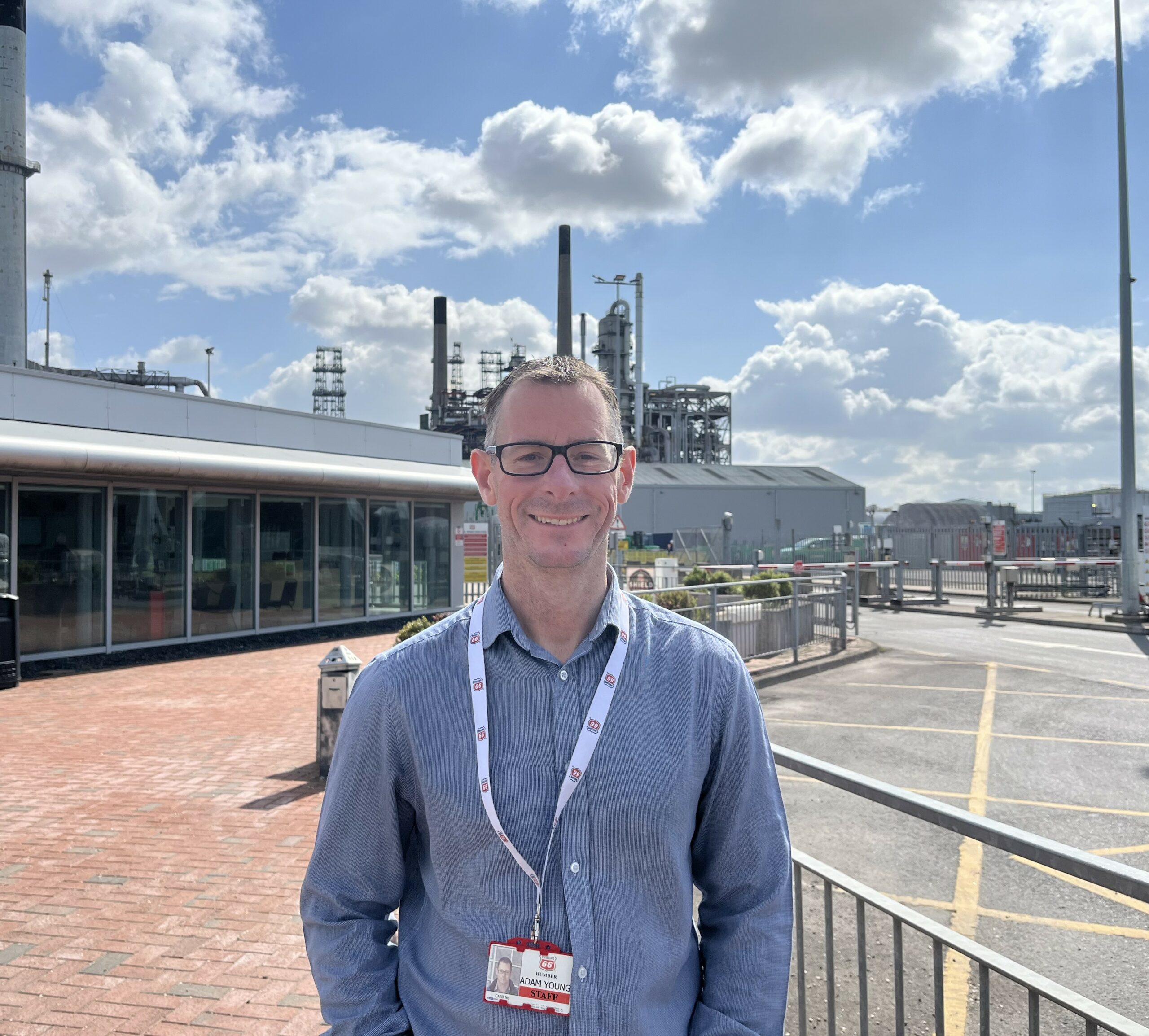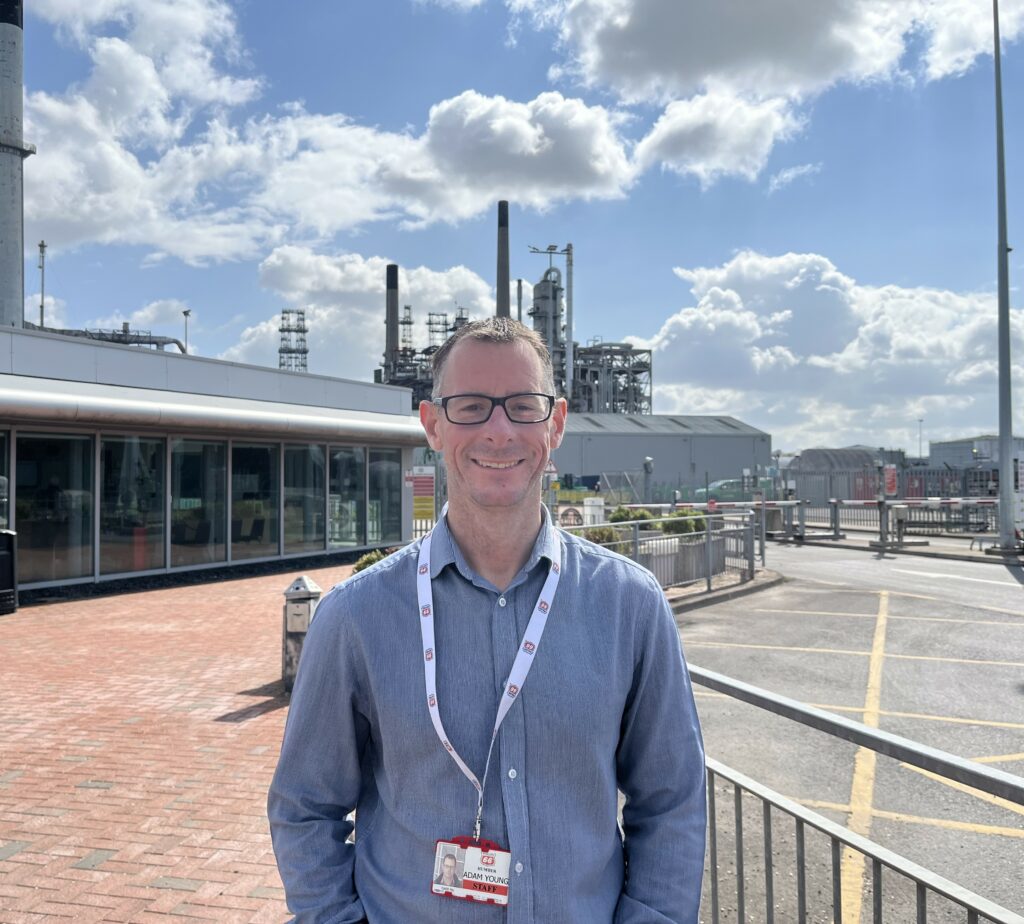
12.06.2024
“Failing to plan is planning to fail”
“Our carbon capture plant represents a groundbreaking initiative within our Fluid Catalytic Cracker (FCC) unit on site,” remarks Adam Young, Project Lead at Phillips 66 Limited.
TCM has played a crucial role in providing the Phillips 66 with insights and expertise to formulate plans for the carbon capture facility at the Humber Refinery in North Lincolnshire, UK. “Effective planning and fostering strong relationships are pivotal to the success of this project,” he emphasized.

“Could you provide a concise overview of Phillips 66’s project, incorporating CO2 capture?”
“Phillips 66 is seeking to reduce its greenhouse gas emissions. In 2021, we established our Emerging Energy division to lead strategic initiatives and develop lower-carbon business practices. The transition to a refinery with lower greenhouse gas emissions is underway. At the Humber Refinery, significant progress has been made. Notably, we are the first UK facility to process waste feedstocks, enabling large-scale production of sustainable aviation fuel under a multi-year commercial agreement with British Airways. Additionally, we are the sole European producer of specialty graphite coke, essential for lithium-ion battery production in consumer electronics and electric vehicles. Our current production is equivalent to placing 1.3 million electric vehicles on the road annually. Furthermore, the Humber Refinery is developing carbon capture and hydrogen refueling projects which are intended to reduce operational greenhouse gas emissions.”
”How has Phillips 66 collaboration with TCM progressed?”
”Our collaboration with TCM has supported the development of our carbon capture site. Working with TCM, we have gained insights and knowledge to shape our project plans. Given the innovative nature of this Fluid Catalytic Cracker (FCC) project, it is important we grasp the requirements, design considerations, and potential challenges. TCM has conducted technology testing, authored scientific papers, and provided guidance on facility operations, all of which are informing our project design and implementation strategies.”
”What are the critical success factors for effectively capturing CO2 in Phillips 66`s project?”
“As the saying goes, ‘failing to plan is planning to fail.’
Planning and relationship-building are paramount. Our carbon capture project, integrated within our FCC unit, represents a pioneering venture on a significant scale. Given its size and complexity, meticulous planning is required, equipment procurement spans years, and resources from a range of stakeholders will be required to deliver the project. Establishing and nurturing relationships are equally vital – we are engaged with partners, the UK government, regulators, suppliers, contractors, workforce, and the local community, all requiring harmonious collaboration. From a technical standpoint, managing the composition and treatment of flue gas is pivotal. We must create optimal conditions for the amine solvent’s efficacy while ensuring compliance with environmental regulations and CO2 export specifications before pipeline entry. This balance is essential for operational success.”
”What is your company’s decarbonisation strategy, and could you provide an overview of the roadmap to achieve your decarbonisation targets?”
”Phillips 66 has set decarbonisation goals, aiming to reduce manufacturing-related emissions intensity from operated assets by 30% and product-related emissions intensity by 15% by 2030. At the Humber Refinery, our focus is on reducing emissions over the long-term. We intend to accomplish this through a combination of energy efficiency projects, carbon capture initiatives, and the implementation of hydrogen refueling infrastructure. These efforts align with our global targets.”
“Finally, what’s the primary challenge that keeps you up at night, and what opportunity excites you the most?”
“Finally, what’s the primary challenge that keeps you up at night, and what opportunity excites you the most?”
”One of the challenges facing all decarbonisation projects is the constraint on construction labour resources. The UK is experiencing a shortage of skilled workers, exacerbated by the multitude of projects entering the execution phase. If left unaddressed, it is projected that we’ll encounter a staggering 40% skills gap by 2032. However, amidst this challenge lies a compelling opportunity that energizes us. We have the chance to bridge this gap, and that is where the excitement builds. To bolster the energy transition, particularly for carbon capture projects like Humber Zero, Phillips 66 Limited, in collaboration with various stakeholders including businesses, educational institutions, and academia, is supporting a local training provider, CATCH. Together, CATCH aims to scale up from training 100 apprentices annually to 1,000 by 2029. This initiative will evolve into a net-zero training centre of excellence, serving as a model for similar endeavours nationwide and globally. It is a testament to our commitment to fostering resilience and enhancing capabilities within the UK economy.”
